We don’t know what it means – don’t think anybody does. Like many words of the Creole language, the exact meaning of the phrase has been lost to history, but that’s how the song ‘My Indian Red’ begins, with the proud call “Madi Cu Defio” – on the streets of New Orleans on Mardi Gras day, by the Black masking Indians dressed up in the most brightly feathered, sequined, pearl decorated, beaded suits with colors so vivid and saturated that they seem to leave a permanent impression upon the retinas, celebrating a culture that is an amalgamation of Native American, African, British, French and Spanish.
It is so much easier to describe a culture, than find a place in it; so much easier to understand the room that you’re born into than understand what the room was built upon; so much easier to see the living shaping you than feel the dead making room for you – especially when you’re standing on the inside, looking out. Maybe, it is a different kind of pride that our culture offers; different than the one we’re used to – the kind that comes from successful reconciliation of contrasts to find the wonderful expressions, festivities and celebrations they lead to, making us experience life more intensely.
Same as our relationship to our culture, it is quite easy to describe a ‘Darjeeling’ than help you find a place for it, when bold claims, advertisements, superlatives, prophets, opinions and economics are all dispensing maps leading back to themselves. The only true respite lies in finding reconciliation in your very room and then tracking it back to what the room was built upon. Oh, and we’re pretty sure it will lead you to exactly where you are today, just that it will make the room wider and the experience of life more intense.
Bob Dylan re- recorded the album ‘Oh Mercy’ in New Orleans and dedicated a chapter by the same name in Chronicles Volume 1. He wrote: Everything in New Orleans is a good idea!… One of Napoleon’s generals, Lallemaud, was said to have come here to check it out, looking for a place for his commander to seek refuge after Waterloo. He scouted around and left, said that here the devil is damned, just like everybody else, only worse. The devil comes here and sighs. New Orleans. Exquisite, old-fashioned. A great place to live vicariously. Nothing makes any difference and you never feel hurt, a great place to really hit on things. Somebody puts something in front of you here and you might as well drink it. Great place to be intimate or do nothing.
But it is in Jazz trumpeter Wynton Marsalis’s ‘Spirit of New Orleans’ that we find the truly celebratory, festive and jovial expressions that navigating and reconciling the contrasts of one’s culture leads to. Though it is no substitute for the spoken lines, but at some point, he wrote:
“Down on the Bayou where the mighty Mississippi kisses Lake Pontchartrain and spills into the Gulf of Mexico. There sits that jewel of the Southland. What the French lost to the British who gave it to the Spanish who lost it back to the French who sold it to America for….. Well, some folks say Jefferson conned Napoleon in a card game and won it for some jambalaya and a chicory coffee.
New Orleans, N’Awlins, the Crescent City, the Big Easy, the northern capitol of the Caribbean, Groove City. Man, they have things down there you wouldn’t believe. A mythic place of Mardi-Gras and mumbo, Voodoo and the moss-covered, alligator-spiked pathways of back-country swamp drained and sprinkled with gris-gris dust to house a wild, unruly population. A city with they own cuisine, they own architecture, they own music..streets with names like Dorgenois and Tchoupitoulas.
People in crazy costumes parading talkin ‘bout “throw me somethin’ mistah,” dressed like Indians chanting ‘bout “Madi,Madi-Cudifiyo,” sittin in the young twilight on the ‘poach’ of they camelback shotgun house eatin po’ boys bout to ‘make’ groceries for the crawfish ‘burl’ they gon’ have on ‘Sadday.’ They sing through horns down there you know. Yeah Padnah! Something called Jazz, started by a cornet man named Bolden. They say Bolden could play so loud the sun was scared to set. Some folks say the air is so thick down here you can eat it with a spoon.
Drummers drag rhythms in dirgey solemnity down neighborhood streets as horns moan, mock and moo. Man, hot notes echo against the sky with such weight as to be objects. Objects of sorrow so passionately played that the dead begin to cry. Then that trumpet calls and everyone falls in behind the band for a second line parade and those musicians get to hollerin and shoutin and folks get to struttin and steppin and the living let go of the dead and sorrow soon becomes laughter. In New Orleans we bury our dead above ground. They always walk amongst us…. but that music… It always ends happy. So when a strong rain brings angry winds howlin’ down the Mississippi or up from the Gulf, those misty winds carry the dreams of ghosts, yes, but not just the goblins of Marie Laveau the Voodoo queen, or the tortured spirits of the legendary, lascivious lovelies of Storyville sporting houses, or even the undead demons of corrupt politicians who have steeled our idealism over three colorful centuries. They also bring the spirits of Saints, of those who have lived here in quiet dignity and sanctified religiosity, of those who have raised kids in the shadow of the St. Louis Cathedral and Sundayed in Jackson Square or of the River Walk lovers holding hands… of many who have fallen in love here, proposed here, honeymooned here. Not just the howling ghouls of the frat-boy drunks on Bourbon Street, but they also bring the angels of all who have romanced in and with this beautiful land on the Delta.
About the New Orleans Saints winning their superbowl, he writes – “ If 4 years is a long time: (your high school years, your college days, the length of the Civil War….WWII)…then 43 years is an eternity. You ever wait for something so long that waiting for it becomes the something? You ever see grown folks put bags over their heads in public, covering up to hide from themselves like an old alcoholic who won’t admit? We can’t help it. We’re with our Saints even when we ‘aint. New Orleans people are stubborn and hate to leave home. Down here, people like to brag about how they handle tragedy. Epochal hurricanes like Betsy and Camille are discussed as if they’re people. “Betsy was bad but Camille, ‘Lawd Have Mercy,’ the water was up here to my neck.” Nobody brags on Katrina. She swept through here like death on a high horse. Those flood waters seemed to run all the demons, goblins, AND saints away forever. There goes old Jean Lafitte, the pirate, relocated to Houston; there goes old Jelly Roll Morton off somewhere in Memphis with that diamond still sparklin in his front tooth.
But quick to return is the unbending will and irrepressible spirit, sin-dipped in Tabasco sauce and spiced with file’ in possession of an unshakable, unbreakable soul that Louis Armstrong first announced to the entire world through a red hot trumpet, that Danny Barker broadcasted on a burnished banjo, and Sidney Bechet shouted and screamed through a scorching horn said to be a soprano saxophone. And here comes that chastened Noah’s arc of a dome rising from ignominy to become again a beacon of community. And, oh yes, they are still down here marching in those funny-named streets blowing history AND the present moment through singing horns. And people still dance with abandon, exuberance, and unbridled human feeling because that music tells ‘em “what has been may be what is, but what will be cannot possibly be known.”
We live the moment. Laissez les bon temps rouler! — Let the Good Times Roll.
And those jazzmen still play sad songs, but they always end happy…they always do.
In its full cultural regalia and very much in the same spirit, is the Cu Defio, an Ambari Vegetative-2, finding its own reconciliation with Darjeeling and its summer – now slightly more intense in its celebration (…and whoever names these cultivars has much more reconcile with!! It’s just sad and lazy.)
While the Summer Eunoia, an early summer AV2, has the distilled, suave and exuberant expressions of Orange and Grapes cued on citrus, the Cu Defio is more baked into the summer; with a little more grip on the tongue; with the notes now much more relaxed, much more comforting; very much like a re-recording- like when Dylan decided to re-record ‘Oh Mercy’ when he was in New Orleans.
Marcel Proust once wrote something that we once reluctantly agreed to, at least initially. Then on a hot, humid, shiny, sweaty, concentrated, tiring summer day it brought an embarrassingly wide grin, almost a laugh, to our faces – “It is comforting when one has a sorrow to lie in the warmth of one’s bed and there, abandoning all effort and all resistance, to bury even one’s head under the cover, giving one’s self up to it completely, moaning like branches in the autumn wind…” .“Moaning like branches in the autumn wind”- that part made us grin on a sorrowless but tiring day . “That’s right, go ahead and moan, if you need to!!”- It’s absolutely comforting. The flavors come bearing the call – to Moan and grin; with tired and comforting aroma of Orange cream biscuits and Grapes diluted with Vanilla in a full body. How all these reminders of moaning and grinning and tiring and comforting, add up to one rejuvenating and exuberant experience can best be referenced within our own cultural celebrations. The color is as vivid as the Mardi Gras Indian costumes – for once, the transparent, vivid color goes with the aroma. Sweet with a really long aftertaste, it is the AV2 cultivar in its full cultural regalia- complicated enough to arouse but simple enough to mesmerize; with sinful astringency, just right, to lock the biscuit and vanilla on your palate.
“Laissez les bon temps rouler!”Amen.
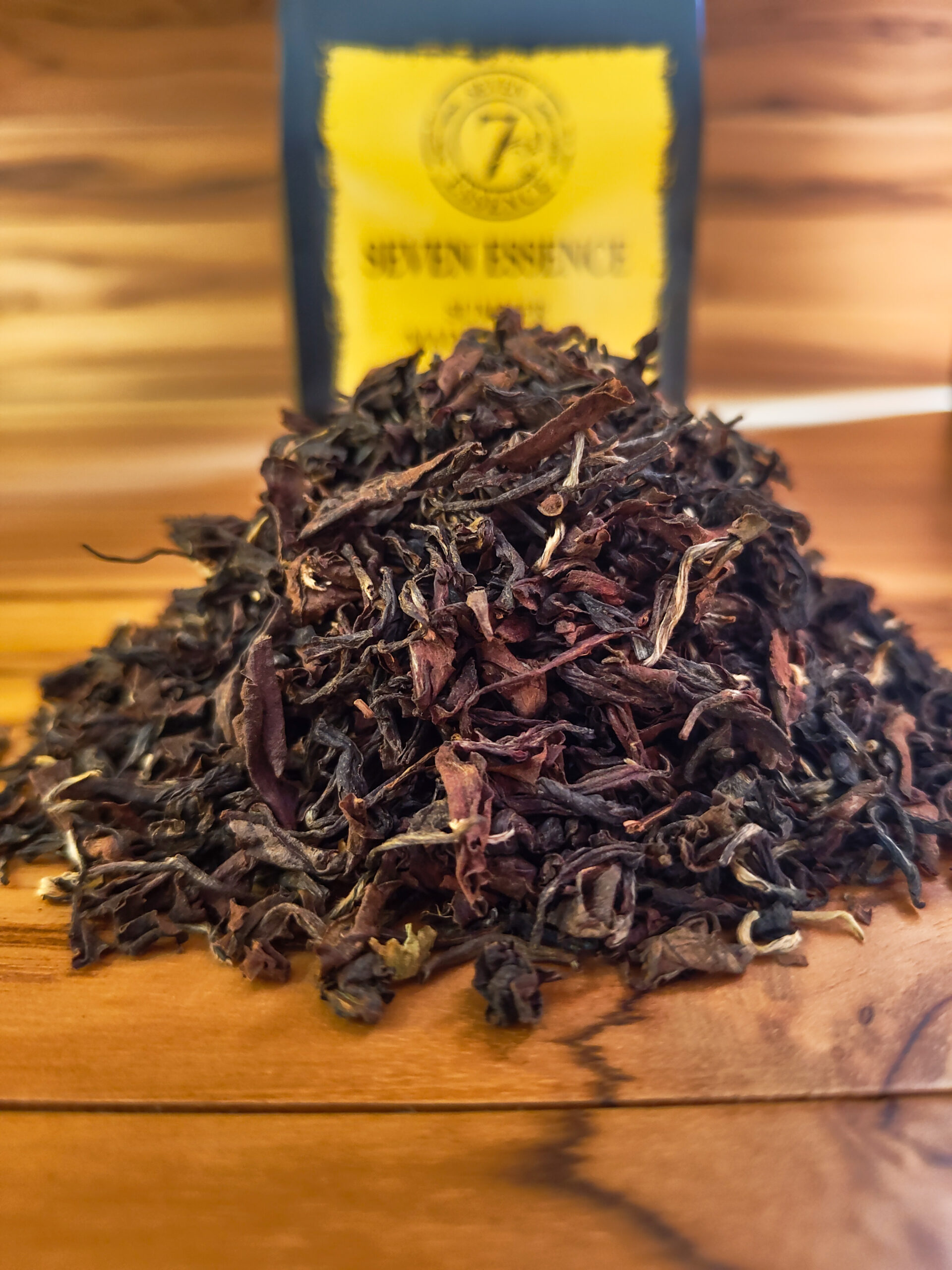
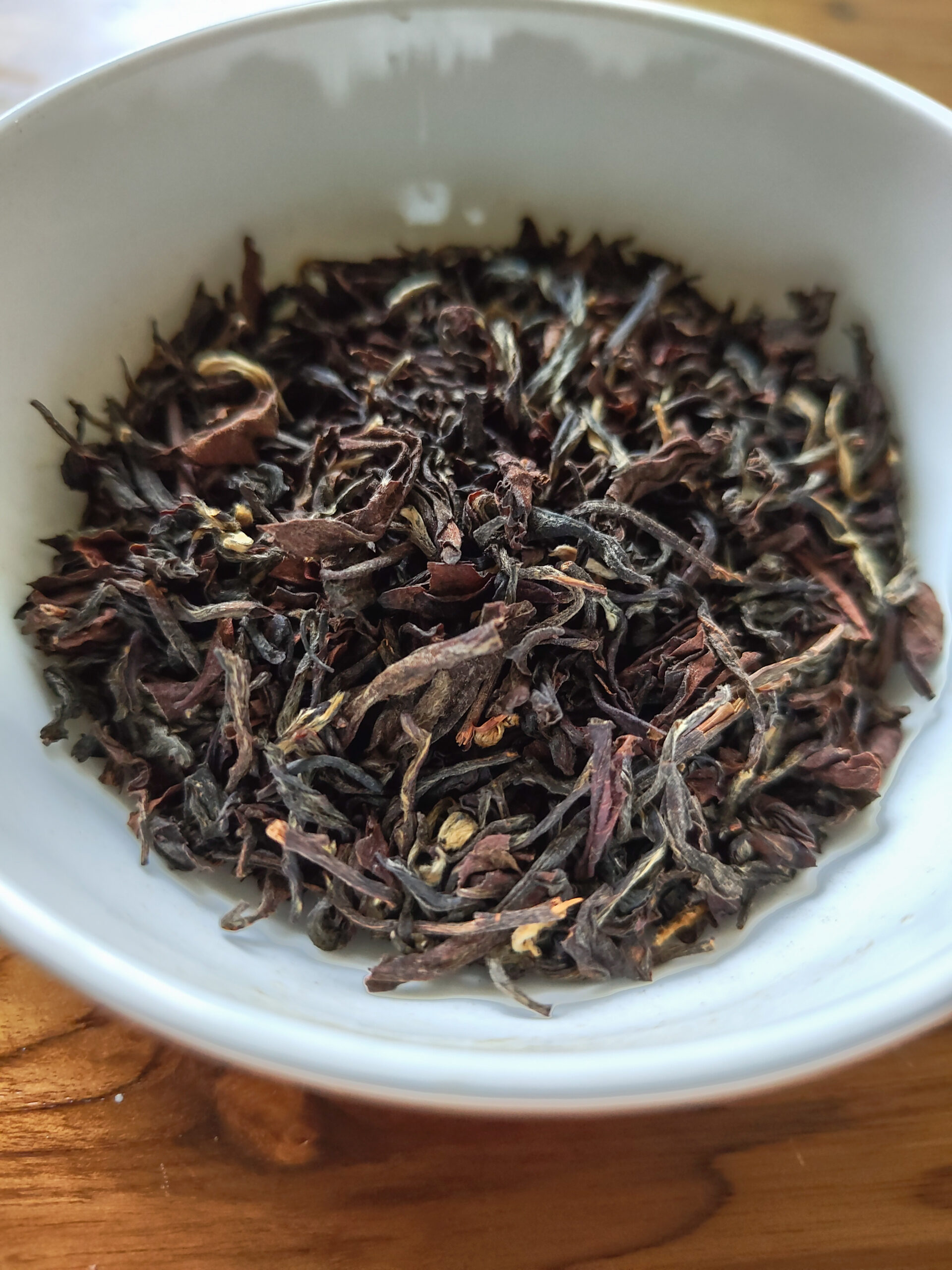




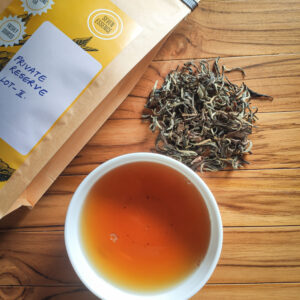
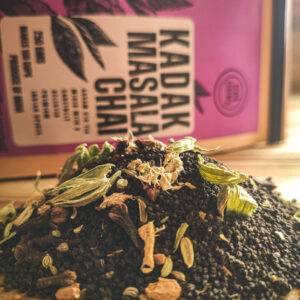
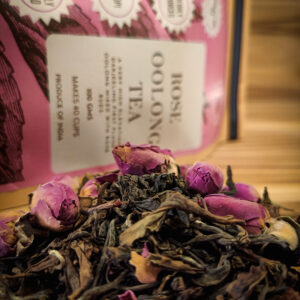
Reviews
There are no reviews yet.